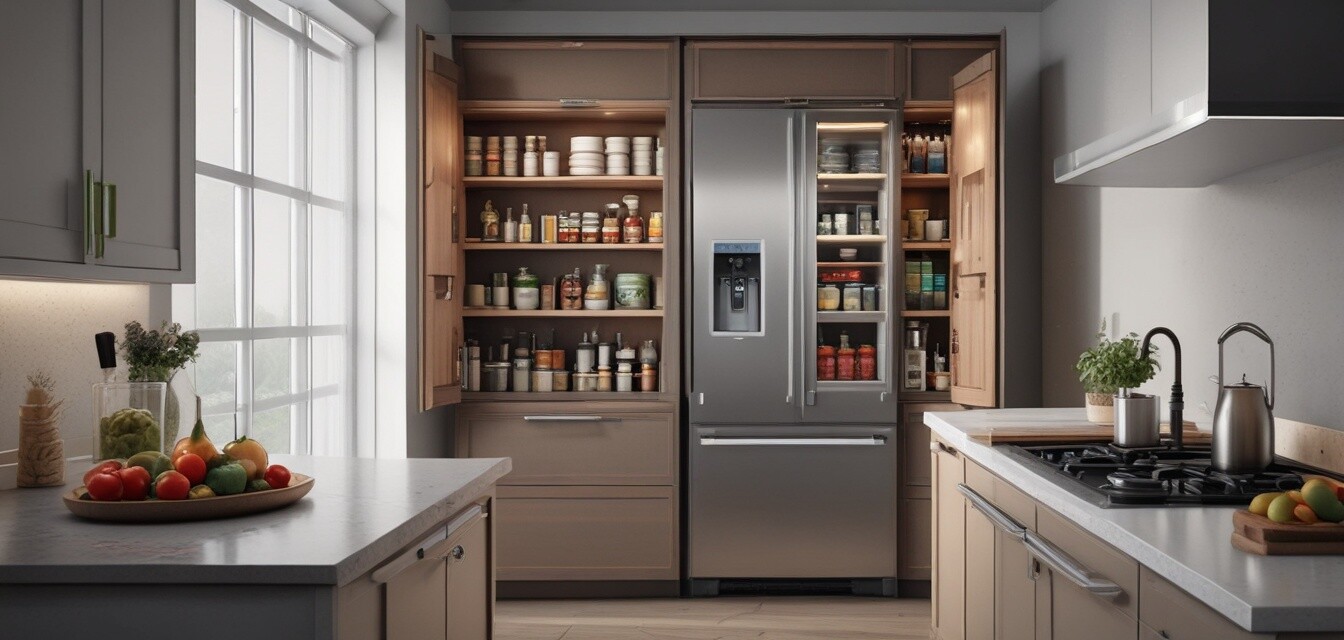
The evolution of food storage: Smart solutions for 2025
Key Takeaways
- Smart technologies are revolutionizing food storage.
- Innovations are aimed at preserving ingredients and reducing waste.
- Key advancements include smart refrigerators, vacuum sealers, and integrated apps.
- Sustainable practices are becoming a standard in food storage solutions.
- Monitoring food freshness through technology enhances user convenience.
As we move towards 2025, the kitchen continues to undergo significant transformations, particularly in food storage. Smart technologies are reshaping how we store our food, aiming to increase shelf life, preserve ingredients, and, most importantly, reduce waste. This article explores the latest innovations and trends that are setting the stage for the future of food storage.
The Impact of Smart Technology on Food Storage
Smart technology has started to influence every aspect of our lives, including our approach to food storage. Major advancements in kitchen appliances are laying the groundwork for more efficient practices. Here’s a closer look at some of these influential changes:
- Remote Monitoring: Many modern refrigerators can be controlled and monitored via smartphone apps, allowing users to manage their food inventory remotely.
- Automatic Inventory Tracking: Smart food storage solutions use sensors to track which ingredients are in stock and alert you before items expire.
- Flexible Storage Options: New designs offer adjustable shelving and compartments that cater to various food types, enhancing versatility and organization.
Innovations in Smart Food Storage Solutions
The future of food storage is vibrant, with a slew of innovations emerging. Below are some leading-edge solutions that exemplify the ongoing transformation:
| Innovation | Description | Benefit |
|---|---|---|
| Smart Refrigerators | Refrigerators with Wi-Fi connectivity and touch screens. | Real-time inventory management and recipe suggestions based on available ingredients. |
| Vacuum Sealers | Devices that remove air from bags to preserve food. | Extends food freshness and minimizes freezer burn. |
| Smart Pantry Solutions | Connected shelving units that monitor contents. | Helps maintain organization and reduces food wastage. |
| Temperature Sensors | Sensors that track temperature changes in food storage units. | Alerts users to potential issues before food spoils. |
Trends in Sustainable Food Storage
Sustainability is increasingly becoming a consideration in kitchen design and food storage technology. As consumers are more environmentally conscious, manufacturers are creating solutions that emphasize eco-friendly practices. Here are a few notable trends:
- Energy-Efficient Appliances: The focus is on reducing energy consumption while maximizing food preservation.
- Recyclable Materials: New packaging and storage solutions are being designed from recyclable or biodegradable materials.
- Email Alerts for Food Expiration: Some smart appliances send notifications when food is nearing its expiration date, prompting users to utilize or freeze ingredients accordingly.
The Future of Food Storage: Predictions for 2025
As we look towards 2025, it’s important to consider how these innovations will shape our culinary experiences. Here are some predictions that could define the future of food storage:
- Increased Integration: Food storage systems will be more integrated with broader smart home systems, allowing seamless interactions.
- AI-Driven Solutions: Artificial intelligence could play a role in meal planning and automatic grocery ordering based on inventory levels.
- Augmented Reality (AR): Users might use AR to visualize food items in the space, leverage recipes, and offer cooking tutorials using smart screens.
Smart kitchen tips for consumers
To get the most out of your food storage solutions, consider these tips:
- Regularly update your pantry and refrigerator inventory to minimize waste.
- Experiment with different vacuum sealing techniques for various food types.
- Take advantage of smartphone apps to track the freshness and expiration of ingredients.
- Educate yourself on the energy-saving features of your appliances.
Pros
- Reduces food waste significantly.
- Enhances food freshness and flavor.
- Provides convenience through technology integration.
Cons
- Higher upfront costs for smart appliances.
- Dependence on technology may not suit everyone.
In conclusion, smart technologies are inherently changing how we store food. By incorporating these advancements into our daily practices, we can enjoy more sustainable, organized, and efficient kitchens. To explore more about smart solutions for your kitchen, check our tips or browse our smart refrigerators section for the latest appliances tailored to fit modern lifestyles.
As innovations continue to emerge, the way we preserve our food and manage our kitchens will undoubtedly evolve, paving the way for a more sustainable and enjoyable culinary experience.